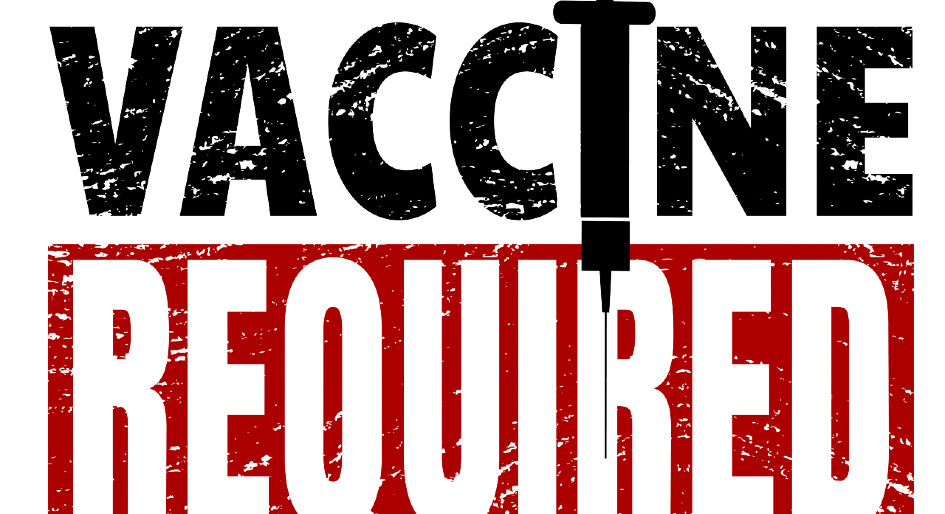Pandemic paperwork is becoming more voluminous for commercial landlords as a growing list of influential tenants ask for proof that building personnel have two valid COVID-19 vaccinations, but industry insiders suggest it’s in line with health and safety obligations that are already well understood. Building owners/managers should be acutely aware of their duty of care for occupants, visitors and even trespassers on their properties, and have due diligence in place to ensure contractors and sub-contractors know the rules and their responsibilities.
“Most office owners that I know have required all of their on-site management and maintenance staff such as janitorial, security and other external contractors to be fully vaccinated,” observes Michael Brooks, chief executive officer of REALPAC, which counts many of Canada’s largest commercial real estate companies and investment managers among its membership. “It’s not a surprise that tenants are calling on landlords to confirm this, and the anticipation of this (tenants’ demands) is why so many building owners are pre-emptively requiring it of their staff and suppliers.”
The Canadian government is one of those tenants. Public Services and Procurement Canada (PSPC) has instructed the landlords of all buildings where it holds leases to submit attestations by October 29 certifying that all building personnel, including contractors and sub-contractors, entering into federally leased premises will be properly vaccinated. That’s ahead of the November 15 enforcement date for the vaccination mandate in the federal public service.
Ottawa landlords in the hot seat for compliance
The directive is prompting something of a cascade of attestations in Ottawa’s commercial real estate market as landlords look in turn to their service providers for proof they can meet the government’s conditions. At least 50 corporate members of the Building Owners and Managers Association (BOMA) of Ottawa accommodate public service tenants, while various non-governmental organizations (NGOs) based in the city and consular officials of foreign governments are setting similar policies.
“Our members, in good faith, are just trying to comply. They’re going to get attestations from their contractors and provide attestations to PSPC as required and do the best they can,” says Dean Karakasis, executive director of BOMA Ottawa. “It’s just another piece of paperwork that they didn’t have to do before March 2020, but they do have to do now, and they are working within those new parameters.”
A recent survey revealed that upwards of two-thirds of BOMA Ottawa corporate members already required proof of vaccination or negative COVID-19 tests from their own staff and contractors coming into their buildings, while supplier members faced the same requirements from many clients, particularly in the health care and education sectors. An absence of feedback on PSPC’s announcement has Karakasis concluding that the membership is largely unruffled at the prospect.
While PSPC’s advisory states “landlords who do not provide the required attestation, or who are subsequently discovered to have provided a false attestation, may be subject to additional measures”, few landlords are issuing warnings of their own.
“None of our members are talking in terms of firing people who are not vaccinated at this point, but policies could change,” Karakasis acknowledges. “We’ll all adapt as things go forward.”
Proof of vaccination not always tamper-proof
Compliance experts caution that some of the current frailties in proof-of-vaccination protocol could prove challenging for those now propelled into watchdog roles. Notably, it’s easy to forge the PDF-based receipts that provincial health agencies issued widely as records of vaccination and, in Ontario at least, the provincial government has announced that they can still be used in place of the newly launched scannable QR codes.
“Anybody who has Adobe Acrobat can take a vaccination receipt, make some changes and they’ve got a piece of paper that says they’ve been double-vaccinated,” advises Eric Hartley Gordon, chief executive officer of Entuitive Compliance Inc., a provider of software-based monitoring and management of credentials and regulatory documentation.
For now, though, it’s problematic to verify vaccination QR codes outside the jurisdictions where they’ve been issued since there is limited ability to transfer information among various systems in Canadian provinces or U.S. states. Gordon anticipates increasing interest in and demand for the COVID-19 modules that his company and similar service providers have added to their offerings. Those modules could help streamline monitoring and record-keeping, support consistent tracking and transparency for national portfolios and, perhaps most importantly, quickly flag workers who haven’t provided proof of vaccination.
“In the bigger picture, it’s about liability if something should happen and there’s a lawsuit or an insurance claim or an environment that’s not safe for the workforce,” Gordon asserts.
Extra tasks seen as a step closer to normal
The next couple of months could be opportune to sort out the logistics before office buildings are once again back at full occupancy. That’s particularly the case in Ottawa where many government departments will still be in work-from-home mode until 2022. For now, Karakasis reports landlords are maintaining health and safety protocols, communicating with tenants about evolving pandemic responses and watching hopefully for a possible further extension of the Canada Emergency Rent Subsidy (CERS), which is currently due to expire on October 23.
The latter is considered critical for retail tenants heavily reliant on office workers for customers. “In an area like Ottawa, where the largest employer — the federal government — hasn’t gone back to the workplace yet, although it’s not a lockdown, it has the same effect,” he reasons.
That employer is also vocal in landlord-tenant communications. Regardless of the extra administrative tasks the vaccination mandate may engender, many commercial landlords are taking heart that it’s a closer step to getting people back into their buildings.
“We’re in constant contact with PSPC. They are trying to let landlords know through us (BOMA Ottawa) and directly, as much as possible, the fluidity of their own changes, and we’re mindful and respectful of that.” Karakasis says. “Right now the industry is preparing for the return of office workers and we don’t have a percentage on that, but we’ll prepare as if everybody’s coming back.”
Barbara Carss is editor-in-chief of Canadian Property Management.






